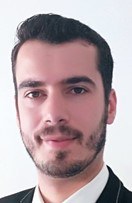PhD Practical Symposium
Fostering City Transitions - Practical Symposium
The Practical Symposium for doctoral students is associated with the Annual Conference of the Research Centre for Territory, Transports and Environment (CITTA). This year, the conference will be held in Porto, focusing on the theme "Fostering City Transitions" and the various issues it raises. The Practical Symposium addresses this theme to promote the necessary skills to advance research in the field of territorial and transport planning. These issues serve as the foundation on which the Research and Development skills promoted by the European Union are considered, focusing on promoting good research practices and the PhD as the first step in the academic world. The Practical Symposium will also offer early-career researchers an opportunity to gain insights into the challenges and opportunities in PhD research. Overall, the participants will be able to grow professionally and expand their knowledge and contact networks in a supportive academic environment.
Objectives
Promote the development of research skills: the Practical Symposium will highlight the core research skills, allowing them to be identified as the transversal tools they are. By examining how their multiple characteristics can be expressed in different research projects (both of the students and the activities developed at the symposium), the aim is to underline their role and importance.
Of the seven skills identified by the European Union ("Doing and Managing Research," "Managing Research Tools", "Managing Own Work", "Cognitive Skills," "Teamwork," and "Creating Impact") the Practical Symposium will offer different moments of reflection on their impact on the students' doctoral research and on planning practice.
Promote a collaborative environment: by integrating students, junior researchers, faculty, and planning professionals, the Practical Symposium will promote an environment of innovation and collaboration. This synergy aims to bridge the gap between theory and practice.
Engage with practical applications: the Practical Symposium will include the presentation of a practical case study by planning professionals. This concrete challenge will allow participants to discuss the role of planning in solving territorial issues, strengthening the relationship between academic research and practical application.
Activities
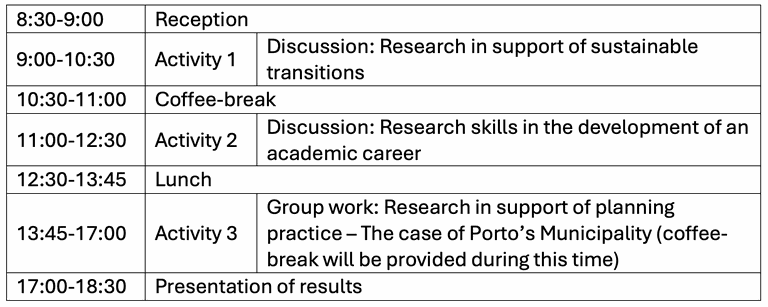
Mentors
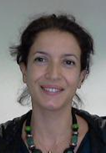
Catarina Cadima
Catarina Cadima is a researcher at the Research Centre for Territory, Transports and Environment, CITTA. She participated in several scientific projects, namely the BooST project (which aims to provide specific technical know-how to allow starter cities to reach the next level of bicycle use), IPTC project (Public transport and urban development: Improving public transport competitiveness versus the private car, CITTA in partnership with the Norwegian Centre for Transport Research) and SPLASH project (Spatial Planning for Change - aims to prepare a body of transformative planning policies, implementation mechanisms and decision support systems, able to guide Portuguese planning practice towards a transition to low carbon and socially inclusive urban system (CITTA, DINÂMIA’CET and GOVCOPP research centres). Her scientific activity has involved Spatial Planning, Economic Geography and Sustainable Mobility. Her research focuses on active commuting to school, decision-making processes and mode choice. Catarina is starting the SWIT Project, which involves school mobility management, within the scope of the Scientific Employment (2021.01013.CEECIND).
Isabel Coimbra
While working as an architect, Isabel Coimbra suspected grass was greener on the other side and hopped onto a doctoral program on Spatial Planning, at the local Faculty of Engineering. After finishing her doctorate, she became an integrated member of CITTA-FEUP hoping for a long and interesting research career, something which is probably considered a curse somewhere. So far, her main research areas pertain to the dynamics of knowledge within territories; participatory and community-led governance; the specificities of spatial justice, identity & recognition, and cultural heritage; systemic capacity building; and housing policies and instruments. Isabel is intent on studying how collaboration, articulation and transformation happen (or fail to happen) within planning and governance. More recently, she has discovered that working on the articulation of actor networks might just be easier than looking after an energetic toddler.
Diogo Correia
Diogo Correia is an electronics engineer with over 7 years of R&D+I industrial experience, ranging from energy harvesting solutions to polymer research for developing electrical signal transmission and electromagnetic interference compliance. In recent years he concluded his Ph.D. at the MIT Portugal Program in the field of energy harvesting for airports, currently, he is a member of the Centre for Functional Ecology (CFE) at the University of Coimbra working as a researcher in the EU-funded (ERC) Bioelectronics and Bioenergy Research Lab, doing his work in energy harvesting, electronics and bioelectronics. In addition to his main field of studies, he has done several innovations and entrepreneurship formations, including the Babson College MBA at Wellesley, USA.
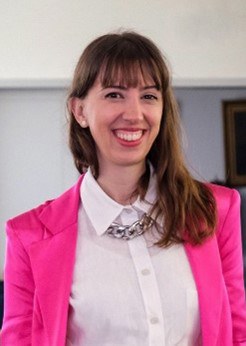 Silvia Spolaor
Silvia Spolaor
Silvia Spolaor is a postdoctoral researcher at CITTA-FEUP, working on the JUST STREETS project. She is a Brazilian architect with a PhD in Spatial Planning from CITTA-FEUP and an MSc in Urban Planning and Policy Design (POLIMI). Her main research interests include urban morphology, informal settlements, Southern urban theory, public participation, and methods and theories that bridge academic knowledge with planning practice and architectural design. In her research, she focuses on understanding how popular knowledge—shaped by social, economic, and cultural factors—influences the physical form of cities and how this comprehension can foster more inclusive planning strategies. Her key skills include qualitative spatial analysis, particularly using historical-geographical and process-typological approaches, along with mapping, to study the diachronic development and transformation of urban form.
Location
The event will take place in the GO Porto and Porto Ambiente municipal companies building (Rua de São Dinis 245, 4250-427 Porto). The building is renowned for its dedication to implementing sustainable solutions, having been awarded the international LEED certification for the energy, water and natural ventilation efficiency solutions applied in its refurbishment.
Organizing Committee
Ana Mélice Dias, Ana Rita Sousa, Anne Patrício, Lara Bomfim, Maria Beirão, Nathalie Andrade
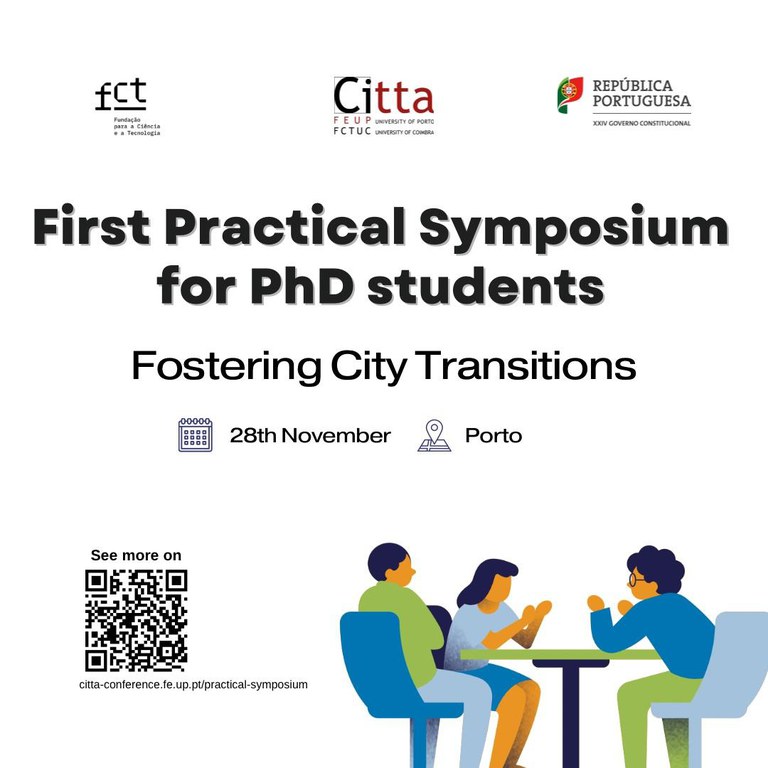
For more information, please get in touch with us via the following email address: pdpt.feup@gmail.com.


